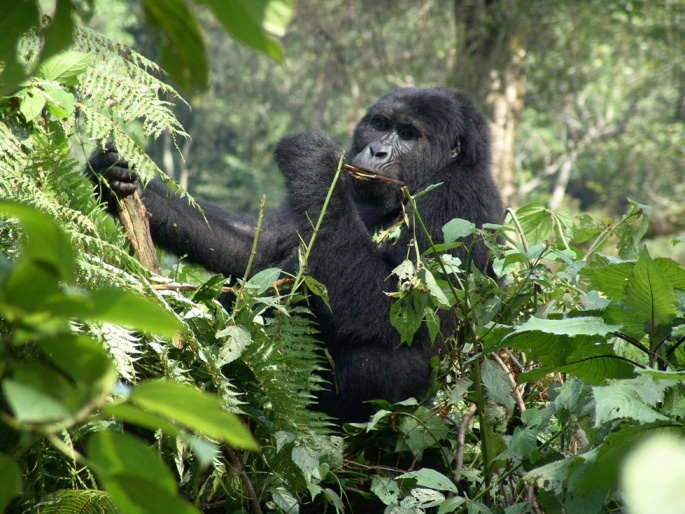Dismay over light sentencing of mountain gorilla poachers in Bwindi
What is the worth of a mountain gorilla? The international community places a high value on these critically-endangered animals and in recent years, there is a growing appreciation for the value of mountain gorillas in communities that live in close proximity to the protected areas that harbor the world's remaining 780 mountain gorillas. It is for this reason that there is widespread dismay over the recent sentencing of three men charged with the killing of a mountain gorilla in Bwindi Impenetrable National Park, resulting in fines ranging from around 18 to 37 US dollars.
 Bwindi Impenetrable Forest is one of the most biologically diverse areas in the world, where half the world's highly endangered Mountain Gorillas live in its jungles.
Bwindi Impenetrable Forest is one of the most biologically diverse areas in the world, where half the world's highly endangered Mountain Gorillas live in its jungles.
The Uganda Wildlife Authority originally reported the death of a blackback male mountain gorilla, named Mizano, at the hands of poachers in Bwindi Impenetrable National Park, Uganda, in June this year. They have today issued a statement on their dismay over the light sentence handed down, a sentiment shared by the International Gorilla Conservation Programme. A necropsy and subsequent investigation concluded that the mountain gorilla had been killed when a spear pierced its lung. That spear belonged to poachers who were in the national park with dogs searching for small antelopes caught in previously set snares. Following an investigation and the use of a police dog unit, three men were arrested from Karambi Trading Centre and several bloodied pangas and spears were confiscated. During the recent trial, the magistrate at the court in Kanungu District, Uganda, concluded that there was not enough evidence presented in court to link the men to the dead mountain gorilla. It was noted that no DNA test was carried out to link the blood found on the confiscated weapons to the mountain gorilla and the results of the necropsy were never presented in court. In short, there was no direct evidence presented in court linking the men to the death of the mountain gorilla.
The result of the lack of evidence presented has resulted in one man being charged with entering a protected area without authority and possession of illegal devices capable of killing wildlife species, with the penalty a fine totaling 100,000 Ugandan Shillings, approximately 37 US Dollars. The other two men were charged with trying to escape arrest, each given a fine of 50,000 Ugandan Shillings, approximately 18 US Dollars. While there is no evidence that the poachers in this case were intending to harm gorillas until their chance encounter with the Habinyanja group in the forest, the fact remains that a mountain gorilla is dead at the hands of people who should not have been in the forest to begin with, stated Eugene Rutagarama, Director of the International Gorilla Conservation Programme (IGCP), a coalition of the African Wildlife Foundation, Fauna & Flora International, and the World Wide Fund for Nature. We are disheartened to hear that the evidence collected by the park authorities and conservation organizations never made it to the court and we are working closely with the Uganda Wildlife Authority to support efforts to forge better connections between wildlife forensics and the legal system in Uganda, he continued. In the statement released today, the Uganda Wildlife Authority stated that although we will not appeal the sentence, we express our shock in the strongest terms and we will be bringing up this issue with the Office of the Chief Justice. Other efforts at the field level are also being planned, including training for park staff as well as sensitization of communities, local government and court systems about the value of mountain gorillas to the local and national economy and their fragility as a species.